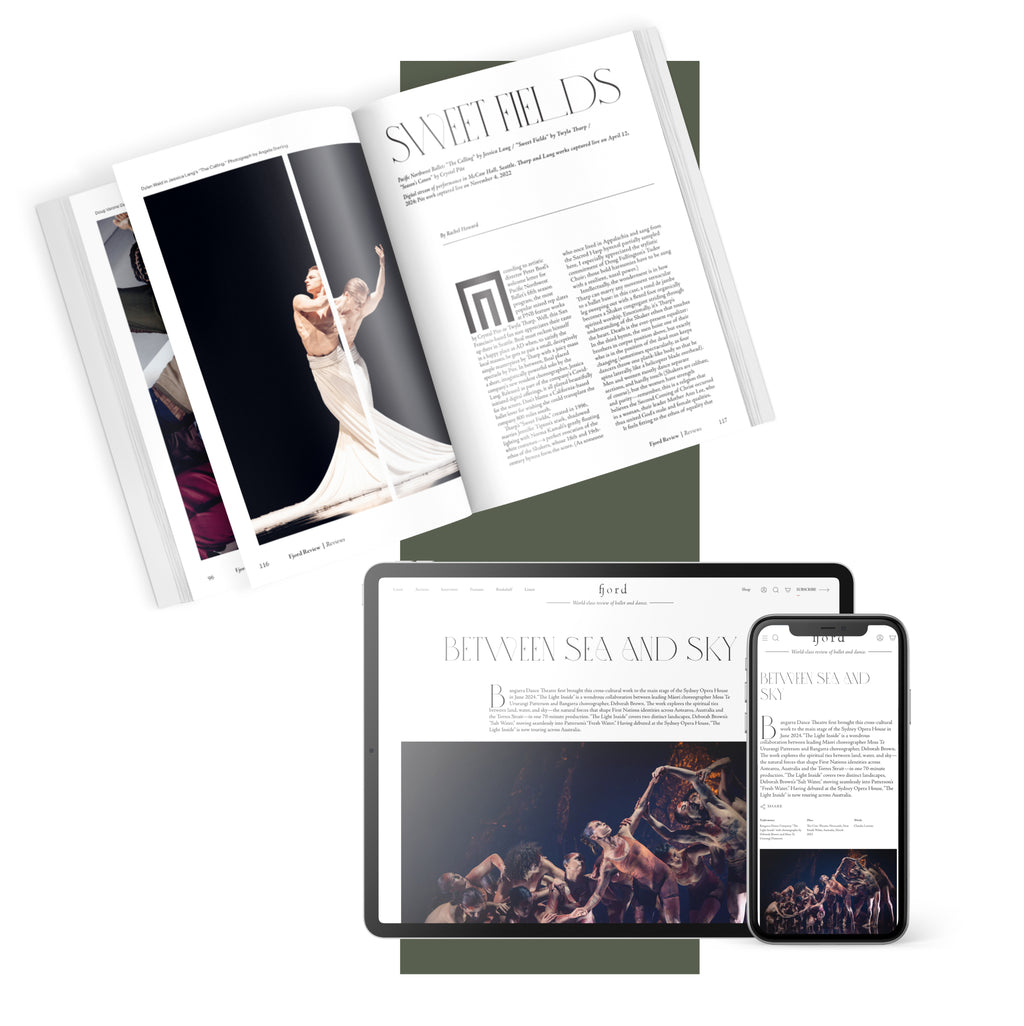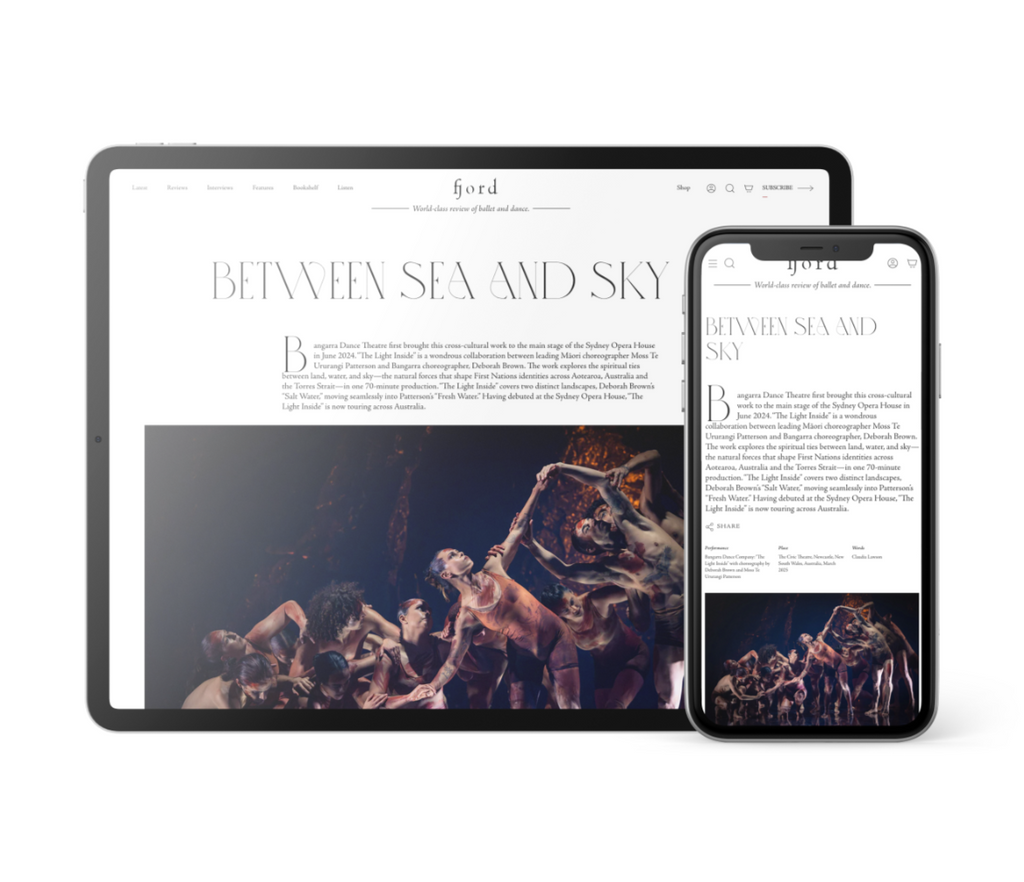Kyle Abraham’s “Mercurial Son” premiered next. It started out strong: to a buzzing noise, Andrew Robare flit around a wing with a curlicue of furious chassés en tournant. His shimmering, tiered, magenta dress resembled gossamer insect wings or a glowing neon light in this dervish pass. Just like the droning hum in the score, the choreographic effect was reverberant and gnat-like. Robare was both bug and bug zapper; it was very cool. But as “Mercurial” progressed, there were fewer moments where the steps met the costumes and the score and elevated all three.
“Mercurial” began to feel like a grim take on a Forsythe ballet, with its dark lighting, skimpy costumes with a few gender-bending accents (by Karen Young), and especially its electronic music. Grischa Lichtenberger’s clanging score evoked composer Thom Willems, Forsythe’s longtime collaborator. But where Forsythe is relentlessly hard-hitting to Willems’s metallic soundscapes, Abraham seemed to mostly focus on the impersonal nature of Lichtenberger’s hospital blips, crickets, and windy swooshes. (He has elucidated the texture of less “musical” pieces better in the past, as in his moody solo “Ash.”) Forsythe’s ferocity is also attached to a sort of conquering sexiness: as his dancers whack away at every beep and chime, they appear to have an extreme-movement runner’s high. But save for Robare, who was on fire, the ABT dancers read as curiously cold while they tore through space in “Mercurial.” They projected anhedonia over voracious euphoria.
Abraham assembled a terrific cast of seven, but for some reason Robare was the only one who really came alive—though Joseph Markey made up ground in his final solo. The magnificent principals Cassandra Trenary and Catherine Hurlin danced fiercely and brilliantly, but their solos felt hollow. It was interesting how both confronted a spotlight in an empty corner and put themselves in it for a moment, facing back. This hinted at a divide between interiority and performativity, but that theme was not developed further. And Abraham has teased it out better before (in “Our Indigo: If We Were a Love Song,” for example).












comments